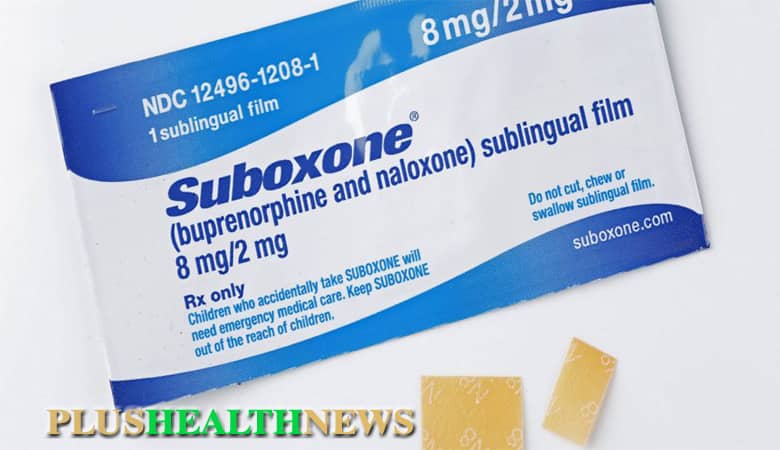Here’s Why Suboxone Can Become Addictive During Medically Assisted Drug Treatment

Suboxone is a medication used to treat opioid addiction. While it has proven effective at helping patients overcome their opioid addiction, some users report experiencing withdrawal symptoms after they stop taking Suboxone.
Suboxone is an extended-release form of buprenorphine, a prescription painkiller that blocks the brain from feeling the high associated with heroin or other opioids. The drug is a powerful medication and can cause severe side effects such as nausea, diarrhea, vomiting, insomnia, anxiety, dry mouth, dizziness, constipation, and depression.
The drug reduces cravings and withdrawal symptoms from opioid addiction. Unfortunately, some patients who take Suboxone develop tolerance and dependence on the medication and develop Suboxone addiction signs. Here are some reasons Suboxone can become addictive.
1. It Gives Euphoria
Suboxone is a combination of naloxone and buprenorphine. It binds to receptors in the brain and produces euphoria, sedation, and analgesia as heroin would. In addition, it blocks the opioid effect on patients, making it an opioid antagonist. Although it is intended for therapeutic purposes, it can still be abused.
Suboxone combats the feelings of pleasure from opioids by preventing the activation of pain receptors and reducing opioid cravings and withdrawal symptoms. As a result, patients may take overdoses to feel high, making them dependent on the drug. So, the first suboxone addiction sign is withdrawal when the use of the drug is discontinued.
2. It Contains Buprenorphine
Buprenorphine is a partial opioid agonist that binds partially to the opiate receptors to reduce opioid effects. It is effective in addiction treatment since it reduces opioid withdrawal symptoms. However, it can produce euphoria and is more potent than morphine.
So, buprenorphine is the component that makes Suboxone addictive since it is a part of the opioid class. This is because it gives Suboxone the ability to produce a high similar to that produced by opioids. So, although it suppresses opioid withdrawal symptoms, it satisfies opioid cravings in a patient. This means patients can misuse Suboxone. As a result, they would require higher doses to receive this effect. So, another Suboxone addiction sign is the need for higher doses of the drug to achieve the same effect.
Buprenorphine causes significant withdrawal symptoms like nausea, headaches, and muscle pain. To curb potential Suboxone addiction, doctors can gradually reduce the doses they administer as the patient progresses or if they notice the patient exhibits Suboxone addiction signs.
However, Suboxone also contains naloxone, an opioid antagonist used during medically assisted drug treatment. Ideally, it binds with the opiate receptors to reverse and block the effects of opioids in a patient. When used alone, it doesn’t give a euphoric feeling like other opioids. This component works together with buprenorphine to help in addiction treatment.
Suboxone Addiction Signs
Suboxone, if taken without a prescription or in large doses, can be dangerous and addictive. Treatment options for suboxone addiction include detox, ongoing aftercare support, and therapy. When you overcome Suboxone addiction, you can completely reclaim your life from opioids. Here are some Suboxone addiction signs to look out for.
- Taking higher doses than prescribed. You may notice a lot of drug packaging in your loved one’s room, taking higher doses, or regular doctor visits. On the other hand, they could be doctor shopping to get many prescriptions.
- Paraphernalia like needles, residue from crushed pills, ropes, or belts: This could be a sign that your loved one is abusing Suboxone and turning it into an injectable solution to inject themselves.
- Loss of coordination, weakness, or limpness
- Inability to think clearly
- Dilated pupils
- Possessing multiple Suboxone prescriptions
- Slurred speech
- Shallow breathing
- Drowsiness
- Upper stomach pain
- Rapid weight loss. Suboxone abuse causes a lack of appetite, leading to weight loss. So, if your loved one’s clothes no longer fit them as before and they cannot explain the weight loss, they are probably abusing Suboxone, hence the weight loss.
- A pounding heartbeat
However, it may be difficult to identify Suboxone addiction from psychological and physical signs alone. So, here are behavioral Suboxone addiction signs.
- Isolation: Patients isolate themselves from friends and family to misuse Suboxone or defend the drug from criticism.
- Losing interest in hobbies, activities, or social activities that the patient previously enjoyed: Once a patient becomes addicted to Suboxone, the only thing on their mind is the drug. As a result, they no longer find interest in socializing or going out since they focus on when and how they will get their next dose.
- Excessive sleep or lack of sleep
- Difficulty keeping up with studies, family, or work
- Financial constraints resulting from the excessive drug purchase: Once patients become dependent on Suboxone to survive, they are bound to have financial issues. This is because they will go to great lengths to ensure a consistent drug supply, including selling their stuff, using their savings, or borrowing money. As a result, constantly purchasing Suboxone will eventually lead them to financial trouble.
- Adopting bad habits like stealing so they can buy the drug or stealing the drug itself.
- Obsessive actions and thoughts towards Suboxone like going overboard in ensuring they don’t run out of the drug.
- Manipulating and lying to friends and family to protect themselves and continue misusing Suboxone
Suboxone overdose signs include blurred vision, constricted pupils, anxiety, headaches, fatigue, dizziness, confusion, chills, stomach pain, slurred speech, loss of coordination and consciousness, and sweating. In extreme overdose cases, it can cause respiratory depression, restricting or stopping breathing. This condition can consequently cause a coma, brain damage, and death. A Suboxone overdose is lethal if left untreated.
However, upon discontinued use of Suboxone, a patient may experience physical Suboxone withdrawal symptoms like runny nose, watery eyes, vomiting, diarrhea, shivering, drug cravings, muscle pain, and feeling too hot or cold. Psychological symptoms of Suboxone withdrawal include mood shifts, poor memory, insomnia, erratic behavior, and depression.
Conclusion: Suboxone is a medication prescribed for opioid dependency. Some patients receiving this medication might experience withdrawal symptoms during detoxification from heroin addiction. However, the patient can kick opioid addiction and become dependent on Suboxone. So, it is important to know suboxone addiction signs to determine whether you have developed a high dependency on the drug and consult a professional for help.




